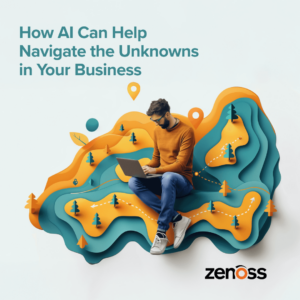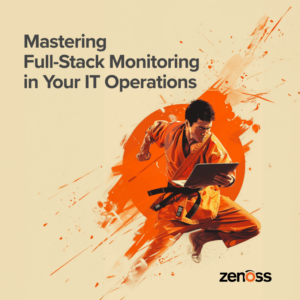
The greatest chefs in the world will tell you 90% of a great meal is the direct result of starting with quality ingredients. Each of the ingredients should taste great by themselves but the magic really happens when you combine them together. The merging of the complex chemical structures of quality food causes a complementing reaction resulting in new flavors. This combination of quality ingredients results in a meal you will always remember.
In the IT world, we have the same format for quality except our ingredients are ones and zeros and the quality is extremely hard to find. Selecting quality ingredients that complement each other is the holy grail of IT. The challenge of selecting quality ingredients is made extremely difficult by closed source software.
Fortunately, we have the open source software world to turn to. In this world of open source software everybody has the opportunity to see the quality of the ingredients. Any kind of quality problems can be recognized and managed appropriately by a community of professional users or by commercial institutions.
An example of a software project that has put quality ingredients together is Dell’s Crowbar project. The project is a combination of open source ingredients such as Ruby, OpsCode Chef, RabbitMQ, Ubuntu, and many others. Each one of these ingredients are quality projects by themselves that have either a strong commercial and/or community support.
Crowbar, in short, is a hardware and software provisioning software tool set. This software orchestrates the many open source projects working together to provide the user with a system to deploy new hardware in minutes. Leveraging the PXE protocol to obtain control of a node it completes the installation of basic software to pass control onto the Chef server. The Chef server focuses its efforts on completing repeatable installation settings locally on the node. Together these projects complement each other to provide a rapid deployment system that provides the control and auditing necessary for organizations large or small.
The Crowbar project was not designed to be internally Dell focused which keeps in tune with the open source world. The Zenoss team is just one company that has created an extension (Barclamp) for Crowbar to deploy their server and client software. The Zenoss software provides service availability management for the deployment and itself is an commercial open source project that can be extended.
Dell’s Crowbar project is a great example how a commercially focused hardware company has invested its resources to support its community of users. Dell’s efforts to support other open source projects such as OpenStack are complemented by the development of Crowbar.
Putting together the right ingredients, Dell has created a community project that will most certainly impact the landscape for cloud deployments. They are leading this effort by open sourcing their software which is taboo in the corporate world. In this case the most important quality ingredients may be the people pushing this project at Dell.







